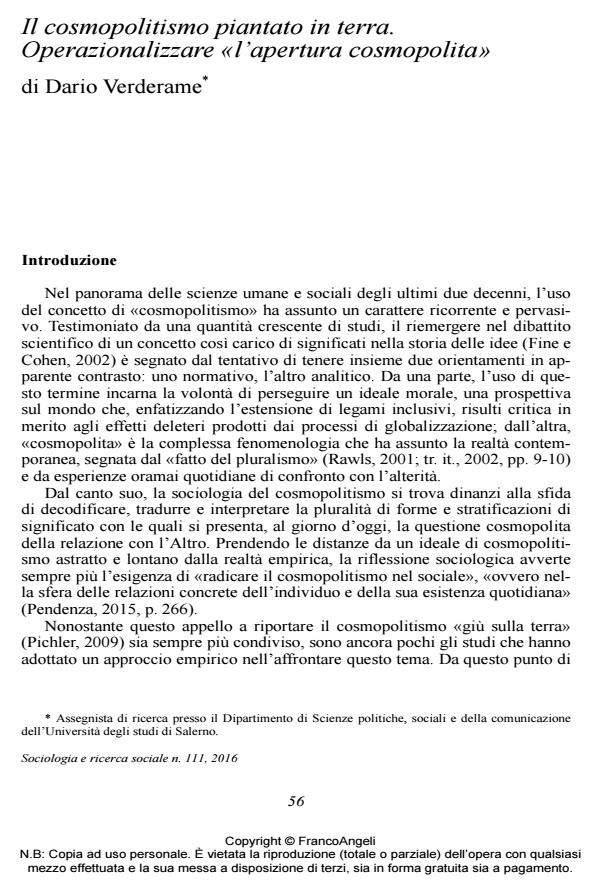Grounded Cosmopolitanism. Operationalizing «Cosmopolitan Openness»
Journal title SOCIOLOGIA E RICERCA SOCIALE
Author/s Dario Verderame
Publishing Year 2016 Issue 2016/111
Language Italian Pages 30 P. 56-85 File size 291 KB
DOI 10.3280/SR2016-111004
DOI is like a bar code for intellectual property: to have more infomation
click here
Below, you can see the article first page
If you want to buy this article in PDF format, you can do it, following the instructions to buy download credits

FrancoAngeli is member of Publishers International Linking Association, Inc (PILA), a not-for-profit association which run the CrossRef service enabling links to and from online scholarly content.
This case study explores participant experiences at the Festival of Europe in Florence, with the aim to answer a series of questions that run through the research agenda on cosmopolitanism. The author begins with an in-depth analysis of the notion of «cosmopolitan openness», still considered vague and indeterminate. Through theoretical considerations, «new» for this field of study, the research highlights two types of cosmopolitan aptitude, «generalized» and «instrumental », and their relation with the sense of territorial belonging («local» and «broad»). The study also analyses the link between transnational experiences and cosmopolitan openness, underlining it’s all but deterministic nature
- Il cosmopolitismo dei giovani alla prova delle crisi Dario Verderame, in Quaderni di Sociologia /2021 pp.7
DOI: 10.4000/qds.4744
Dario Verderame, Il cosmopolitismo piantato in terra. Operazionalizzare «l’apertura cosmopolita» in "SOCIOLOGIA E RICERCA SOCIALE " 111/2016, pp 56-85, DOI: 10.3280/SR2016-111004